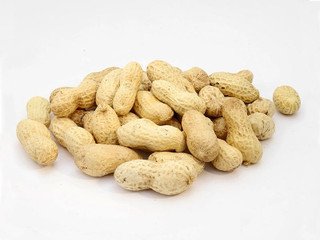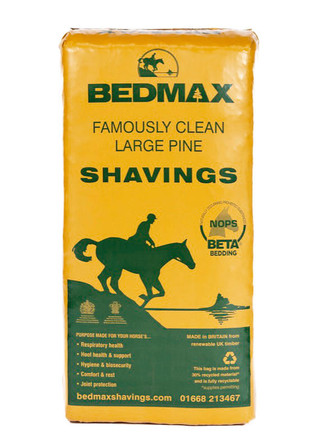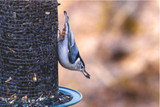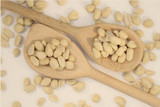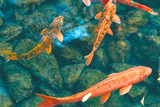How to Help Wildlife with Hibernation

Helping wildlife with hibernation
Helping wildlife with hibernation. Winter can be a difficult time for the UK’s wildlife due to the drop in temperature, wet weather and lack of shelter. Birds themselves do not usually hibernate, instead some breeds migrate to find food to survive during the winter months. To keep your feathered garden friends fed this winter, it’s recommended to put suet bird food in your feeders to ensure that your birds survive the harsh conditions. Whilst it’s vitally important to look after your garden birds during the colder months by feeding them with quality wild bird food, it’s also important to remember to look after the other cute critters that are preparing for hibernation this winter. In this article we’ll go over what hibernation actually is and why it’s so important to help wildlife during this time of year. Read on to learn more…What is hibernation?
Hibernation is an important process that many animals go through every winter. It’s a way for animals to survive the bitterly cold and dark conditions that the winter season brings. As the animals can’t forage for food in these conditions, they feed heavily during summer and autumn, store fat and slow down their metabolisms to save energy. Unfortunately, many creatures don’t survive this process due to severe weather conditions, lack of fat or simply waking up before the weather gets warm enough to survive. That’s why it’s important for us wildlife lovers to do what we can to make sure our furry friends survive this difficult time.Animals that hibernate in the UK
Hedgehogs Our beloved hedgehogs are one of the animals in the UK that hibernate. They feed on beetles, caterpillars and earthworms to build up enough fat to survive the winter and arise from their slumber in mid-March. Lucky for some! If you find hedgehogs regularly visiting your garden, make them welcome with a helpful hedgehog nest box and hedgehog mixture. Dormice These adorable furry friends start to snuggle up and hibernate in October and sometimes don’t emerge until as late as April or May. Dormice fatten up and grow to over twice their size to prepare for the hibernation period. Their breathing rate and body temperature drop dramatically during winter so it’s important to ensure they’re well fed before the cold weather starts. Bats Bats are fortunate enough to be able to squeeze themselves into small crevices such as our bat box, to shield themselves from the hands of Jack Frost. Unlike other critters, bats need to wake up every now and then to excrete and top up on food and water. Insects Did you know that hibernating isn’t just for mammals? There are plenty of insects and amphibians that hibernate too! Bumblebees, butterflies, frogs and toads are some of the other creatures in the UK that hibernate in the UK to protect themselves from the cold weather conditions.How to help wildlife with hibernation
The best way you can help hibernating animals it to create shelter or hide where they can rest safe, sound and warm throughout winter. Providing them with some of our delicious wild bird food can also help them to stock up on fat and other essential nutrients ready for the winter! Hedgehogs For hedgehogs, you could put all of your fallen autumn leaves to good use by creating a hide for hedgehogs to hibernate in. Gather all of your garden leaves under a bush or in an unused corner of your garden, surround it with a mix of twigs and branches and provide a small entrance for the hedgehogs to get in. Amphibians Frogs hibernate at the bottom of ponds, so in order to make sure they’re getting enough oxygen, make sure your pond plants are getting enough light to photosynthesise. Other amphibians can pretty much hibernate anywhere damp and sheltered. To help them out this winter, build piles of logs, leaves, soil and rocks to keep them safe and sound from pesky predators and fierce frost. With all this in mind, one of the best things you can do to help wildlife with their seasonal slumber is to leave them be! If you find any snoozing creatures, make sure they remain undisturbed so that they can survive the winter. Before the cold weather sets in,make sure you’re keeping your garden stocked up with some of amazing range of bird food, particularly our suet and fat balls, essential for wildlife preparing for hibernation. If you’re taking to the outdoors this winter, make sure to read our seasonal birdwatching tips before you go, to make the most of your outing!
Explore Popular Articles
-
How Sunflower Seeds Can Improve Your Bird's Health
14th Jun 2024Birds are quite attracted towards sunflower seeds, but have you ever wondered about sunflower seeds'
-
The Ultimate Guide to Feeding Peanuts to Birds: Benefits and Considerations
16th May 2024Feeding Peanuts to birds is a common practice due to their high nutritious value. Being an excellent
-
Signs of Overfeeding Fish: How to Spot and Prevent it
7th May 2024Do you know that fish are more likely to die from overfeeding than starvation? One of the most pre









